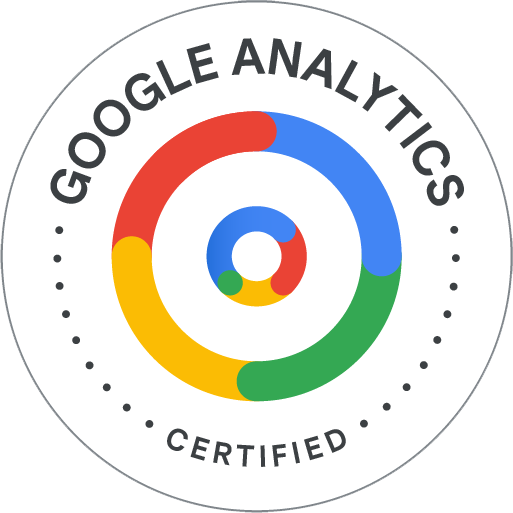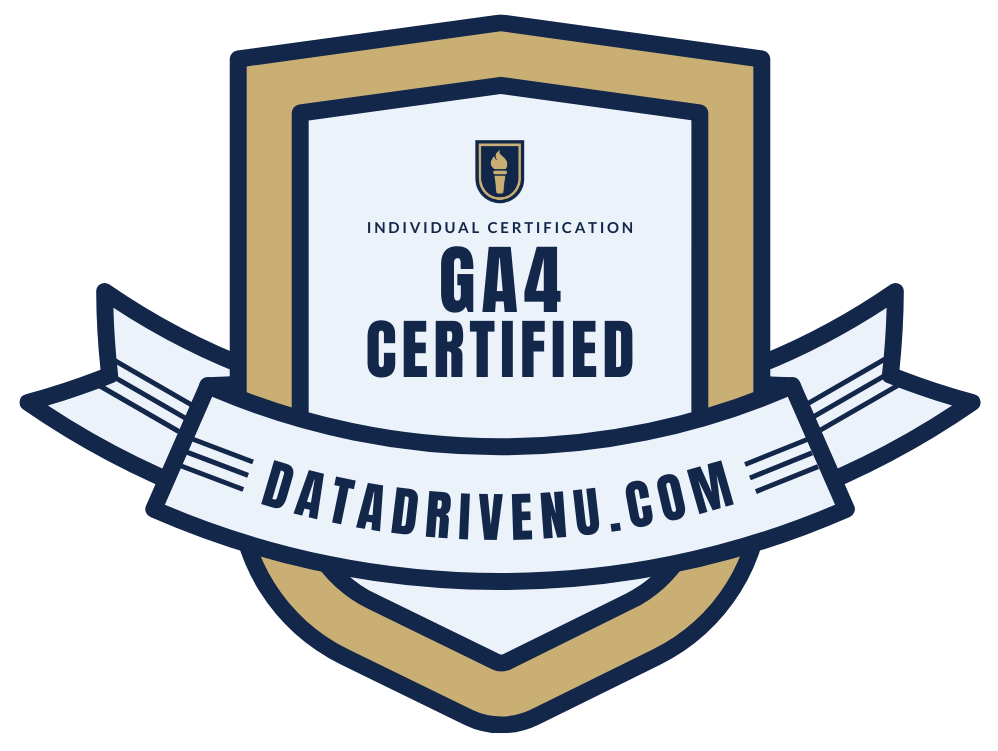Niche Mindset
Welcome to the Market Inside Out podcast with Suzanne Longstreet, Emma O’Brien and Michelle Tresemer. It’s time to diffuse the marketing minefield for entrepreneurs.
It sounds counterintuitive, right? Narrowing down your target market in order to increase revenues, price, status, and clients? Especially if you’re a small business owner, the idea of niching can incite a lot of fears: fear of commitment, fear of excluding potential customers, and even that big-F-word fear—failure! If you’re about to take a deep niche dive, Suzanne, Emma, and Michelle will allay your anxieties with this been-there-done-that conversation about adopting a niche mindset. They speak with sage experience about why niching is scary, what niching does and does not mean, and why you should take a deep breath and take that dive into your niche.
“…what they don’t tell you is that niche is a total head fuck when you’re starting a business.”
Emma O’Brien
Let’s face it. Finding your niche is hard. But it will be especially difficult if you allow fear be the loudest voice in your head, whispering things like “everything must be perfect before launch” or “don’t make a mistake.”
Suzanne (00:31): “This is the thing, you can either take all of the courses that you need to take and then be perfect. Or you can just throw yourself out there and see what happens, and know that you’re going to make mistakes. And that’s what makes us more real and human for our clients.”
Emma (01:34): “Yeah, just the whole niching thing sent me into a tizz. It was just this thing I mentally wrestled with for years.”
Finding Your Niche
When we talk about finding your niche, we’re talking about focusing–appealing to a smaller, specialized section of the market; you’re narrowing your type of client.
Emma (02:03): “So rather than saying, ‘Oh, I work with women aged 35 to 50,’ (that’s a massive swath of people. Right?), you want to niche down even further to get more specific on exactly who that woman is. So instead of just some generic woman, anywhere between 35 and 50, maybe it’s she lives in the city. She is high performing. She’s ambitious. She’s got a good job. She’s looking for love. She likes these types of books.
“You get like really specific. And that’s called niching down. So instead of trying to play the big game, ‘I serve anyone,’ you’re like, ‘I just serve this very narrow, well-defined group of people.’”
The Niche Mindset
Each small business owner needs to internalize Seth Godin’s maxim about marketing: “Everyone is not your customer.” When you accept that and start to work from that point, you move closer to a niche mindset.
Especially new small businesses can have a tough time with this.
Suzanne (03:46): “I remember talking to somebody who just got their coaching designation years ago. And I said, ‘Okay, so who are you going to serve? Who are you going to help? Who’s your ideal client? Who’s your niche market?’ And they said, ‘I can help everyone.’ I went, ‘Wait a second. There’s over 7 billion people in the world. You can help everybody?’
Michelle (04:13): “So, you’re right and wrong….Yes, if you worked with, take any random person, you could help them. But if it’s the wrong fit, your help is may be only going to help them, 10%, 20%. Your ideal client, you’ll be able to help them 100%.”
Michelle (04:36): “I do weird digital marketing strategy and audits. I technically can work with any business, any coach, freelancer. You name it, I can help them with this exact product. It might help them 5%. But my ideal client, they are going to value the hell out of it, because it’s going to move them way forward and it’s going to help them 100%. So, why waste time helping someone 5%? They’re not going to appreciate you. They’re not going to give you good referrals or recommendations.”
Suzanne (05:12): “So, instead, find the person who loves what you do, needs what you do, is willing to pay you more.”
Thinking in Terms of Bullseye Target Market
Finding your niche can be aided by thinking of your prospects in concentric circles around your ideal customers.
- Generally, the inner circle, the bullseye, will be your for-sure customers. They’re reliable often social media visitors, ready to buy, and want to buy from you.
- If you go out from there, think of another circle of potential customers who are ready to buy a service or product, but they’ll take a bit of coaxing—ads, emails, social interaction—to get them to convert.
- In an outer circle your someday customers float. They’re not ready to buy, but you want to keep them in your sites with content and ads, because when they’re ready, you want them to know where they can land. If you caught Episode 8 of Market Inside Out, Embrace Your Ghost Audience, you can see these outer ring folks are often passive but there, and you may not hear from them for a long while. You may also want to check out M.T. Wroblewski’s Chron article on Bullseye marketing to learn more.
Suzanne talks about applying the bullseye marketing principles to niching.
Suzanne (05:24): “I was totally like, ‘Oh my God, how can I do this?’ And the way that it was explained to me, which I absolutely loved, was bullseye target market….It’s this woman who’s between 48 and 52. And then I have a three-page detailed document about her. I’ve even named her, and all of the things that she likes to do, and all of the things that she doesn’t like to do, and all the things that are getting in her way. And I speak to that person when I’m marketing.
“… what it does is it helps me to understand where I’m going to spend my resources, my money, where I’m going to spend my time, and where I’m going to put my energy. So, my time, money, and energy resources to get to and reach that person or that type of person.
“But here’s the thing, might a Fred, a guy, read it and go, ‘Oh my gosh, she’s speaking to me!’ Sure. Do I work with that person? Absolutely. And I focus my time, money, and energy on this smaller niche market. It doesn’t mean that we’re not going to be able to sell or help other people. It just means this is where I’m going to put my time, money, and energy.”
Finding Your Niche Takes Time and Flexibility
Michelle (06:54): “If we could talk about a small business, like a new small business owner, it’s very, it’s scary to try to niche down because you don’t know. So, I want to say yes,
“try to get your niche as close as possible to what you think it might be, but be really open to that adjusting over time.”
Michelle Tresemer
“You don’t know who you’re best to work with until you’ve worked with 100, 200, 300 clients. You just don’t know. So, take a stab at it and do your best, but it’s not like you have to do this forever.”
Emma (07:32): “So, I think what, for me personally, niching down felt so terrifying because it’s like, ‘I’m committing to this. This is it. It better work.’ Yeah. And that’s what’s terrifying. You’re like, ‘I’m going to say no to all this. And, what if I don’t like this niche? And, what if it’s boring? What if I don’t make enough money?’ And you’re right. You can change. It’s not set in stone.”
Put Your Focus Out There Like a Sandwich Board
Emma (08:04): “You know those signs…that people in the city put out–Yeah, on the sidewalk, like ‘Today’s special.’ Right? It’s like ‘Ham and cheese sandwich’…That’s your niche. Put out your sandwich sign and say…‘This is who I’m working with.’ Try it. And if it doesn’t work, change the sign and try something else.
“So yeah, Michelle, you’re right. If you’re starting out and you don’t know, that’s fine. Take your best guess. And then when you have some customers under your belt, look back and think, ‘Who got the best results with me? Who’s definitely referring me to all their friends? Who did I like working with?’”
Suzanne (08:38): “…if you really don’t know who you want to work with as a brand-new person, and this is what I did, is I just wrote out myself five years ago. I just wrote that out. And then I spoke to that person. And you know what? There’s a lot of people who were like me, five years ago.”
Emma (08:56): “You start a business because you want something that you didn’t have.”
Suzanne (09:01): “And then it was like, ‘Oh, this is easy.’ And when I would go into networking events, when we could do that, I could see that woman who was me across the street, across the room, and I would be able to go and confidently talk to her.”
Find Your Not-Forever Niche
Michelle (11:34): “ I talk to a lot of startups. And I have a whole startup essential thing, and I call it, ‘Your not-forever logo. Your not-forever tagline. Your not-forever website.”And I’m very honest with them that what they go live with when they start, I can guarantee is not going to be what it is six months or 12 months from now. It is going to change so much, and you have to let it happen. And it’s going to happen naturally.
So, yeah. Take your best shot. And be authentic to who you are, and what you’re doing, and that’ll start attracting your ideal right out the gate.”
Emma (12:11): “I love that…”Find your not-forever niche.”
For Your Customers, Specialization Equates With Expertise
Emma (12:22): “So even though it feels scary and wrong to kind of get narrow with your message and only speak to a certain type of audience, I want to flip it for you, so you can see how powerful it is. Imagine that you have to get heart surgery and you’re shopping for a doctor. You’re going online. Would you go for a general practitioner on their website? Or would you go to the cardiac specialist that talks all about doing open-heart surgery? You’re going to go with a specialist who just focuses on the problem that you have. You’re going to go with them way over the generalist. It’s going to seem like the safer bet.
“The same thing is going to happen with your niche. They’re going to see your messaging, your website, whatever, and just be like, ‘Wow, they’re totally for me. It’s a no brainer.’ And that’s the power of niching, but you have to see it from the flip side, from the customer. It’s like they’re getting the benefit. While it feels terrifying for you, it’s actually making life easier for your future customers.”
When You Connect With Your Own Passions and Purpose, They Will Come
Suzanne (13:28): “…from a mindset perspective…even if you think you don’t have a niche market, you do. And so that’s where I would go inside and connect with your own passions, and your purpose, and what really lights you up, and then go and find that person and to work with. Because again, when you make it more fun and when you connect with people that you really like working with and you see the results in their eyes, whether it be selling them a service or a product, that makes it more fun and fulfilling for us as business owners, and for the individual.
“And get out there and do it, people need you!”
Key Takeaways From Today’s Episode
- Niching is hard, especially for small startups. Be gentle with yourself.
- When you appeal to a smaller, defined section of the market, you’re narrowing your type of client and you’re focusing in on who you really want to serve.
- Accepting Seth Godin’s “Everyone is not your customer” is a good first step to developing a niche mindset. Even though you might technically be able help anyone out there to a certain extent, you’ll be able to help your ideal client perfectly—like 100%. Since your time, money, and energy are limited, focus on those who will appreciate you, want to pay you for your services, and give you great referrals.
- Picture customers in concentric circles on a bullseye: your ideal customers are in the center, potential customers who need coaxing are next, and the outer circle is comprised of floaters who are not ready to buy but they’ll need to know you’re there when they have cash in hand. Market for your ideal customers.
- Put your time, money, and energy into reaching the ideal customers.
- Get your niche as close as possible to your ideal customer, but be really open to that adjusting over time.
- Put your focus out there; appeal to that niche. If it doesn’t work, adjust.
- Finding your niche is a process, and one that you will be adjusting from here on out.
- For startups, think of your niche as your “not-forever niche.”
- For your customers, your specialization equates with a higher level of expertise. And they’ll be willing to pay for that expertise.
- When marketing to your ideal customer, be authentic and embed your passions and purpose into your messaging.

Michelle Tresemer
Categories
- Analytics and Measurement
- Brand Messaging
- Competitor Analysis
- Content Marketing
- Digital Marketing Strategy
- Digital PR & Events
- Marketing Budgets
- Marketing KPIs
- Marketing News
- Marketing Rock Samples
- Marketing Staffing & Vendors
- Marketing Strategy
- Marketing Tech Stack
- Podcast
- Product Marketing
- Sales Marketing Alignment
- SEO
- Social Media
- Strategic Marketing Partnerships
- Target Markets
- Uncategorized
- Vision & Purpose
- Webmaster








